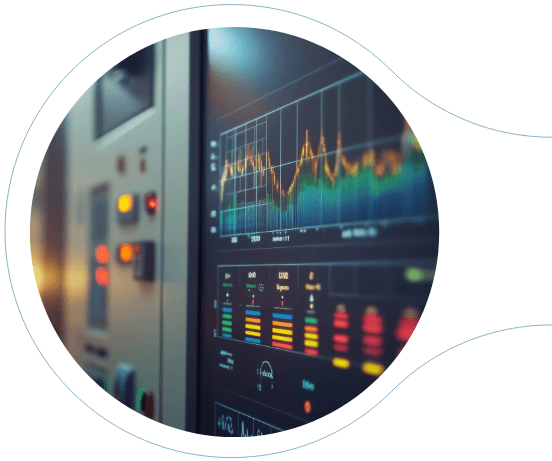
Bosch Mobility Electronics faced delays in accessing KPIs and relied on manual data extraction from multiple plants. As a result, decision-making became latent since there was no visibility over energy utilization, interruptions, cycle time, and changeover.
LangChain
Python
Qdrant
Meta Llama 2

Manufacturing today has become an amalgamation of foresight factories, micro-factories, scalable digital twins, prescriptive maintenance, smarter robots, and more. At the center lies GenAI. The industry is becoming more automated and data-driven for ensuring operational continuity, minimizing downtime, and staying ahead of trends – every second. However, the traditional methods to access key performance indices rely heavily on manual data extraction and complex analysis, making the process slow and error-prone. Without timely insights, businesses struggle to detect inefficiencies, production delays, and performance bottlenecks, ultimately impacting cost control and overall agility.
Bosch Mobility Electronics, a leading industrial manufacturer, encountered these issues firsthand, struggling to interpret data from multiple sources, often resulting in inconsistencies and inefficiencies. Slower access to metrics such as utilization, cycle time, and changeover stood as roadblocks. To address these, they needed a self-service, AI-powered platform that could streamline this, enhance accuracy, and deliver meaningful insights—reducing dependence on manual workflows while enabling a more adaptable and responsive manufacturing environment.

Recognizing Bosch Mobility Electronics’ business challenges, Bosch SDS set out to streamline and modernize the approach with automation and intelligence. The goal was to eliminate delays, offer instant insights, and empower them to generate actionable data —without being over-dependant on data analysts.
To achieve this, we implemented a GenAI solution that seamlessly gathered data from multiple platforms. This not only enhanced both the accuracy and speed of insights but also provided Bosch Mobility Electronics with instant access to key performance metrics, allowing them to make informed decisions faster and improve operational efficiency. As a result, the solution brought significant improvements for Bosch Mobility Electronics in key areas, as highlighted
We identified inefficiencies in Bosch Mobility Electronics’ data derivation process. Our GenAI-powered solution automated KPI generation, streamlined workflows, and reduced delays. By integrating disparate data sources, we helped Bosch Mobility Electronics gain complete visibility on business-critical metrics, improving their decision-making, productivity, and responsiveness.
Provided real-time insights across systems
Made system management easier and more adaptable
Enabled automated generation of key performance metrics
Reduced manual analysis, enhancing efficiency and decision-making

Leveraging our expertise in GenAI and operational optimization, we engineered a solution that enables Bosch Mobility Electronics to transform decision-making into a proactive strategy. The team developed an approach that allows instant access to critical metrics, empowering Bosch Mobility Electronics to move from mitigating risks to becoming more resilient to them. By embedding AI-driven intelligence directly into their workflow, Bosch Mobility Electronics now possesses a scalable, future-ready analytics framework that enhances both agility and efficiency.
